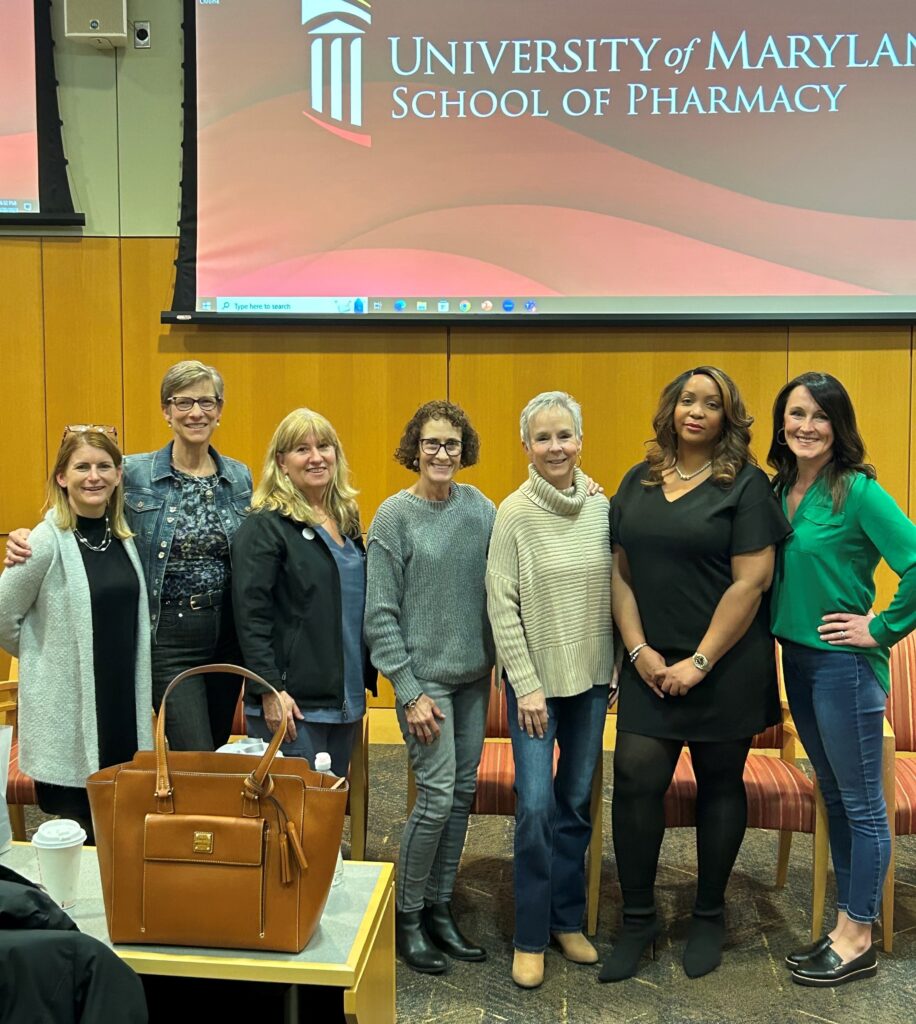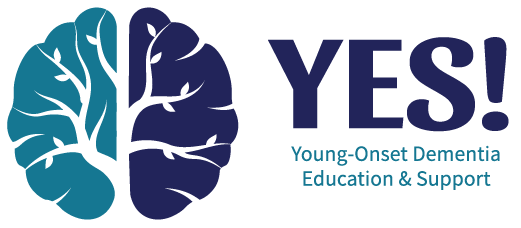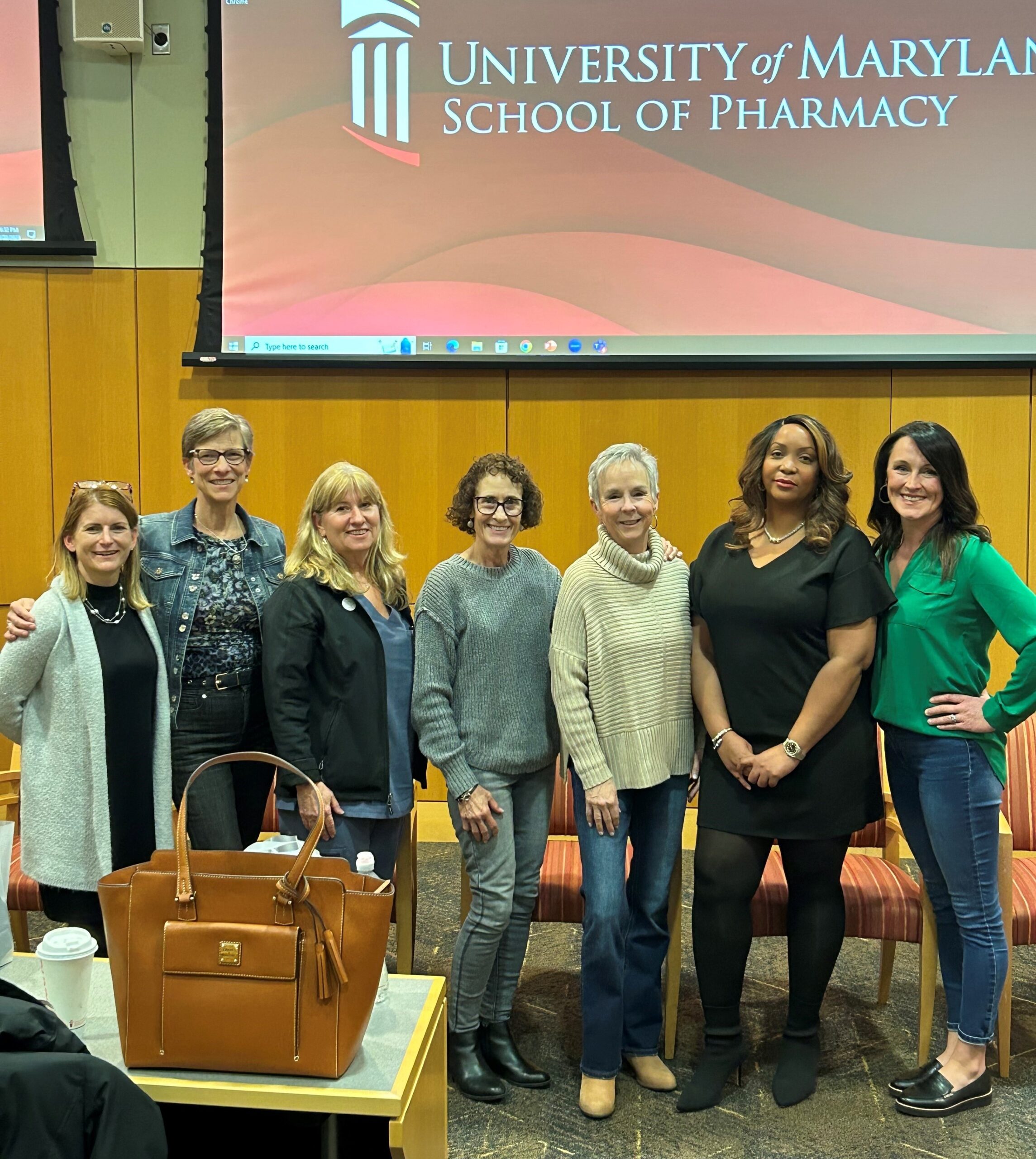The Young-onset Education and Support (YES) organization was invited to participate in a panel on February 22, 2023, for the University of Maryland School of Pharmacy student body to address medication management and concerns for those diagnosed with young-onset dementias (diagnosed under 65 years old). The panel was hosted and moderated by Dr. Nicole Brandt, Executive Director of the Peter Lamy Center on Drug Therapy and Aging, and Professor in the Department of Practice, Sciences, and Health Outcomes Research. Panelists included four YES Board members, and a member of the YES Women’s Support Group, who were able to speak to their personal experiences.

Each panelist shared their story of loved ones diagnosed with various types of young-onset dementias. YES Board member Evie Vander Meer shared the story of her husband Mark, who was diagnosed at 61 years old with young-onset Alzheimer’s disease, and his swift decline as he moved from assisted-living to a psychiatric hospital and ultimately to hospice. Shannon Hammond, YES board member, shared the challenging story of her mother Deborah, who was diagnosed with Lewy Body dementia at 61 years old. Her mother’s serious adverse reaction to several medications is unfortunately all too common with Lewy Body dementia. Kathy Rogers, also a YES Board member, echoed their concerns as she shared her husband Dave’s story; diagnosed with Primary Progressive Aphasia (PPA)/Frontotemporal dementia (FTD) at 49 years old, Dave spiraled into the vicious cycle of medication management after an ER visit led to hospitalization that resulted in admission to hospice in a matter of weeks. PPA and FTD medication management appeared to be a factor in Dave’s decline. Each speaker attributed detailed lists of medications that may have been a contributing factor in the decline of their loved ones. Shelette Grant-Owens, a member of the YES Women’s Support group, is a current caregiver for her husband Steve, diagnosed with young-onset Alzheimer’s disease at 55 years old. Thanks to YES and her fellow panelists, Shelette has become more aware of the devastating reactions to medications as she continues to care for Steve. And sharing this knowledge is one of the goals of the education element YES promotes.
Each panel speaker advocated for more thoughtfulness in prescribing medications to patients with young-onset dementias, expressing that medication side effects and interaction with other medications are highly dependent on the type of dementia the patient has as a diagnosis. One side effect that was highlighted more than once was aggression. For those diagnosed when their body is still young and strong, aggression can lead to physically dangerous situations for both caregivers and patients that would not occur with older dementia patients who have more physical limitations. Jill Rosner, also a YES board member, is an Aging Life Care Manager who provided guidance and support for Evie, Shannon, Kathy, and many other families who navigate the maze of medication management. Her shared experiences, along with the stories from the panelists, were empowering for the upcoming pharmaceutical students learning more about the complex medication reactions that occur in ER, hospitals, geriatric psych units, and other facilities young-onset dementia patients encounter.
Pharmacists have the unique opportunity to see the patient through the eyes of their medications. The students present were open to taking on the challenge of bringing additional oversight and knowledge that could result in reduced unsafe combinations of contra-indicated drugs prescribed to their dementia patients.
The panel, which took place on a Wednesday evening, was open to the whole UMD School of Pharmacy student body and was offered both in-person and via Zoom. It was well-attended, which reflects the growing awareness regarding medication management for young-onset dementia care.





